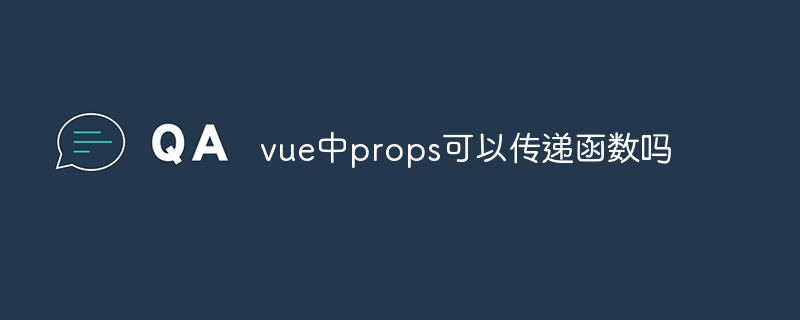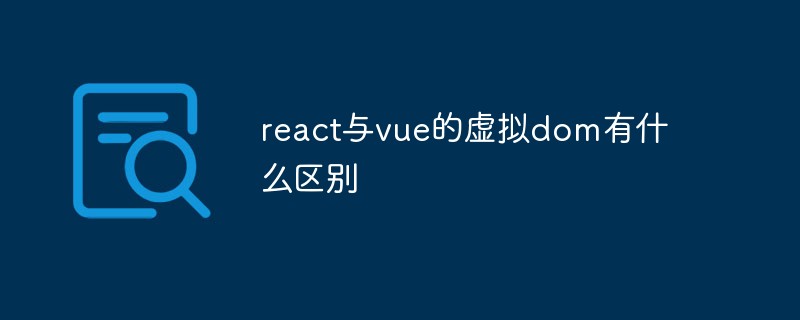This article mainly introduces how to use Redux with Vue. The content is quite good. I will share it with you now and give it as a reference.
Looking at the Vuex source code last weekend, I suddenly had an inspiration, why is it all Vuex?
So I wrote a plug-in all afternoon to help Vue use Redux
Gayhub Url
Vue-with-Redux
This is a plug-in to help Vue use Redux to manage state. Redux is a very popular state management tool. vue-with-redux provides you with a way to use Redux in the Vue environment. This time brings a different development experience.
Start
First you need to install vue-with-redux through the following command
npm install -save vue-with-redux
Run Demo
git clone https://github.com/ryouaki/vue-with-redux.git npm install npm run serve
##Usage
// 有可能是你的entry.js文件
... // 这里是你引入的其它包
import VuexRedux from 'vue-with-redux';
import { makeReduxStore } from 'vue-with-redux';
import reduces from 'YOUR-REDUCERS';
import middlewares from 'REDUX-MIDDLEWARES';
Vue.use(VuexRedux);
let store = makeReduxStore(reduces, [middlewares]);
new Vue({
store,
render: h => h(App)
}).$mount('#app')
The following is an actionCreate function:
export function test() {
return {
type: 'TEST'
}
}
export function asyncTest() {
return (dispatch, getState) => {
setTimeout( () => {
console.log('New:', getState());
dispatch({type: 'TEST'});
console.log('Old', getState());
}, 100);
}
}
Note: You do not need to use redux-thunk, because Vue-with-Redux already provides support for asynchronous processing.
function reduce (state = { count: 0 }, action) {
switch(action.type) {
case 'TEST':
state.count++;
return state;
default:
return state;
}
}
export default {
reduce
};
Vue component example:
<template>
<p>
<button @click="clickHandler1">Action Object</button>
<button @click="clickHandler2">Sync Action</button>
<button @click="clickHandler3">Async Action</button>
<p>{{reduce.count}}</p>
</p>
</template>
<script>
import { test, asyncTest } from './../actions';
export default {
name: 'HelloWorld',
props: {
msg: String
},
// 你必须在这里预先定义你订阅的Redux中的状态。否则编译模版会报错。
data() {
return {
reduce: {}
}
},
methods: {
clickHandler1() {
this.dispatch({type: 'TEST'});
},
clickHandler2() {
this.dispatch(test());
},
clickHandler3() {
this.dispatch(asyncTest());
},
// 你必须实现一个mapReduxState函数,用于告诉Vue-with-Redux你需要订阅哪些redux中的状态
// [ state ] 参数就是redux状态树的根。
mapReduxState(state) {
return {
reduce: state.reduce
}
},
}
}
</script>
The above is the entire content of this article. I hope it will be helpful to everyone’s study. For more related content, please pay attention to the PHP Chinese website! Related recommendations:
Introduction to vue routing interception and page jump setting methods
vue data cannot use arrows Problem analysis of functions
The above is the detailed content of How Vue uses Redux. For more information, please follow other related articles on the PHP Chinese website!
 vue中props可以传递函数吗Jun 16, 2022 am 10:39 AM
vue中props可以传递函数吗Jun 16, 2022 am 10:39 AMvue中props可以传递函数;vue中可以将字符串、数组、数字和对象作为props传递,props主要用于组件的传值,目的为了接收外面传过来的数据,语法为“export default {methods: {myFunction() {// ...}}};”。
 聊聊vue指令中的修饰符,常用事件修饰符总结May 09, 2022 am 11:07 AM
聊聊vue指令中的修饰符,常用事件修饰符总结May 09, 2022 am 11:07 AM本篇文章带大家聊聊vue指令中的修饰符,对比一下vue中的指令修饰符和dom事件中的event对象,介绍一下常用的事件修饰符,希望对大家有所帮助!
 如何覆盖组件库样式?React和Vue项目的解决方法浅析May 16, 2022 am 11:15 AM
如何覆盖组件库样式?React和Vue项目的解决方法浅析May 16, 2022 am 11:15 AM如何覆盖组件库样式?下面本篇文章给大家介绍一下React和Vue项目中优雅地覆盖组件库样式的方法,希望对大家有所帮助!
 react与vue的虚拟dom有什么区别Apr 22, 2022 am 11:11 AM
react与vue的虚拟dom有什么区别Apr 22, 2022 am 11:11 AMreact与vue的虚拟dom没有区别;react和vue的虚拟dom都是用js对象来模拟真实DOM,用虚拟DOM的diff来最小化更新真实DOM,可以减小不必要的性能损耗,按颗粒度分为不同的类型比较同层级dom节点,进行增、删、移的操作。


Hot AI Tools

Undresser.AI Undress
AI-powered app for creating realistic nude photos

AI Clothes Remover
Online AI tool for removing clothes from photos.

Undress AI Tool
Undress images for free

Clothoff.io
AI clothes remover

AI Hentai Generator
Generate AI Hentai for free.

Hot Article

Hot Tools

SublimeText3 Linux new version
SublimeText3 Linux latest version

MinGW - Minimalist GNU for Windows
This project is in the process of being migrated to osdn.net/projects/mingw, you can continue to follow us there. MinGW: A native Windows port of the GNU Compiler Collection (GCC), freely distributable import libraries and header files for building native Windows applications; includes extensions to the MSVC runtime to support C99 functionality. All MinGW software can run on 64-bit Windows platforms.

SAP NetWeaver Server Adapter for Eclipse
Integrate Eclipse with SAP NetWeaver application server.

VSCode Windows 64-bit Download
A free and powerful IDE editor launched by Microsoft

Notepad++7.3.1
Easy-to-use and free code editor










